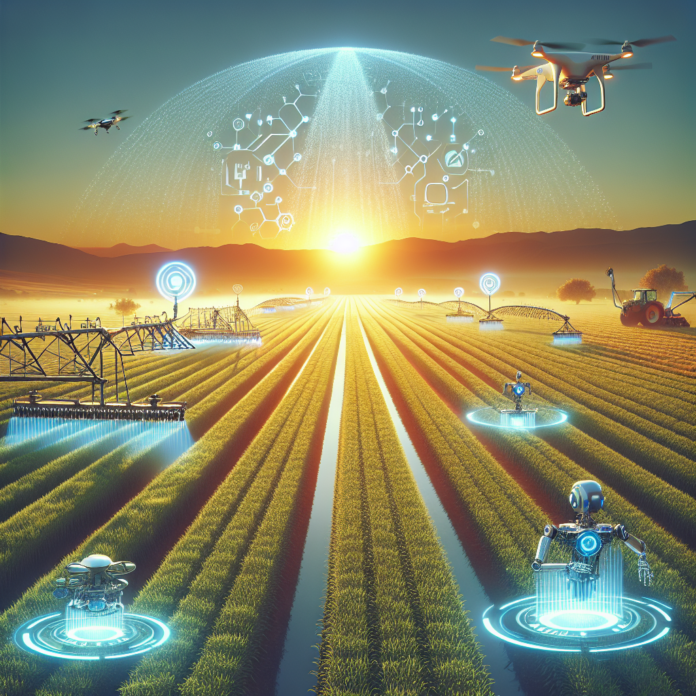The Next Frontier: Leveraging AI and Agriculture BBN Times
The Next Frontier: Leveraging AI and Agriculture
As the global population continues to rise, the demand for food production is reaching unprecedented levels. Traditional farming methods are increasingly unable to meet these demands, necessitating innovative solutions. One of the most promising avenues for revolutionizing agriculture is the integration of Artificial Intelligence (AI) technologies. This approach not only enhances productivity but also ensures sustainability and efficiency.
Precision Farming
AI-powered precision farming techniques enable farmers to optimize crop yields by utilizing data analytics, machine learning, and IoT devices. Drones equipped with advanced sensors and cameras can monitor crop health, soil conditions, and environmental factors in real-time. This data is then analyzed to provide actionable insights, allowing for precise application of water, fertilizers, and pesticides. The result is a significant reduction in resource wastage and an increase in overall farm efficiency.
Predictive Analytics
Predictive analytics, driven by AI, can forecast weather patterns, pest invasions, and crop diseases. By analyzing historical data and real-time information, AI algorithms can predict potential issues before they become critical. This allows farmers to take proactive measures, safeguarding their crops and minimizing losses. Additionally, predictive analytics can help in planning planting and harvesting schedules, ensuring optimal crop growth and yield.
Automated Machinery
The advent of AI-driven automated machinery is transforming the agricultural landscape. Autonomous tractors, harvesters, and planters are becoming increasingly common, reducing the need for manual labor and enhancing operational efficiency. These machines can work around the clock with minimal human intervention, ensuring timely and consistent farming activities.
Supply Chain Optimization
AI is also playing a crucial role in optimizing the agricultural supply chain. From farm to fork, AI systems can streamline logistics, reduce food wastage, and improve traceability. For instance, AI can analyze market demand and adjust supply chain operations accordingly, ensuring that produce reaches consumers in the freshest condition possible. This not only benefits farmers and retailers but also helps in reducing the environmental impact of food transportation.
Enhancing Livestock Management
AI technologies are not limited to crop farming; they are also making significant strides in livestock management. AI-powered monitoring systems can track the health and behavior of livestock in real-time, identifying signs of illness or stress early on. This allows for prompt intervention, improving animal welfare and reducing the risk of disease outbreaks. Furthermore, AI can optimize feeding schedules and breeding programs, enhancing overall productivity and sustainability in livestock farming.
Challenges and Future Prospects
While the integration of AI in agriculture holds immense potential, it is not without challenges. High initial costs, lack of technical expertise, and data privacy concerns are some of the barriers that need to be addressed. However, with ongoing advancements in technology and increasing awareness of the benefits, these challenges are likely to diminish over time.
The future of agriculture is undeniably intertwined with AI. As these technologies continue to evolve, they will enable farmers to produce more food with fewer resources, ensuring food security for the growing global population. By embracing AI, the agricultural sector can embark on a new era of innovation, sustainability, and efficiency, paving the way for a brighter and more prosperous future.


